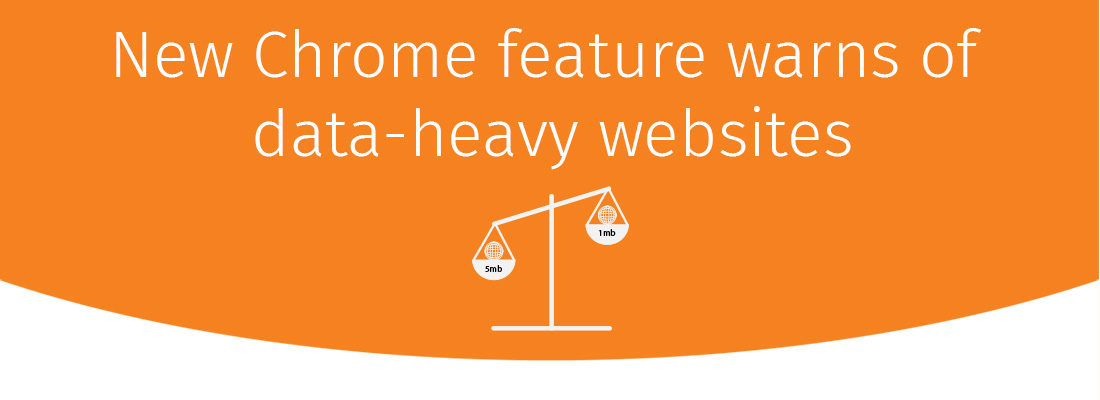New Chrome feature warns users of data-heavy websites

A new feature appearing in the beta version of the popular Google Chrome browser hints at things to come, as Google continues to crack down on slow and data-heavy websites.
Heavy Page Capping
Introduced in Chrome Canary, the pre-release version of Google Chrome; heavy page capping is a new feature that warns users when a webpage is attempting to download more than a pre-set amount of data.
Once a page tries to download more than this, the browser offers the user the option to pause loading.
This seems to be a particular focus of Google recently, along with the previously mentioned changes to Google’s page speed algorithm. With the introduction of AMP pages, progressive web apps and new web technologies it’s easier than ever to have efficienct and performant websites.
The feature looks set to be released on all versions of Chrome in the future, across Windows, Max, Linux, ChromeOS and Android. This could be of great benefit to mobile users who often end up unknowingly using a lot of mobile data on data-heavy websites.
How can I check my site?
As mentioned in our previous article on page speed, Google has a suite of tools to test your website’s page speed.
The easiest of these is Page Speed Insights (or PSI), which gives an easy to understand score of your website’s page speed. It then offers suggestions for improvement, along with automatically optimized scripts and images.
Another fantastic tool is SEOptimer, which includes page speed as one of it’s scoring factors. SEOptimer can also give you a clearer understanding of whether your website has been put together properly, and if your SEO could be improved.
What does this mean for the future?
As we’ve seen recently, Google seems to be taking steps to fight slow, data-heavy and un-optimized websites. This is fantastic for the end-user, as it means their online experience should be quick, seamless and easy.
Currently the feature isn’t enabled by default, but we don’t doubt that a reasonable default page size limit could see it’s way into the browser in the future.
Want to chat about anything in this post? Email the team or give us a call
